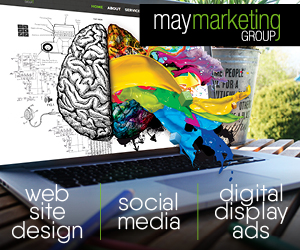
By Seva May
In an era where digital communication has become ubiquitous, Facebook is an emblem of our collective obsession with social media. Launched in 2004, it has evolved from a mere social networking platform to an omnipresent entity that influences personal identity, mental health, and the dissemination of information. In examining the absurdity of Facebook, it is essential to consider how the platform shapes our online personas, the implications for our mental well-being, and the role it plays in perpetuating misinformation. This critical analysis will delve into these dimensions, revealing the paradoxes and pitfalls accompanying our digital interactions on Facebook, ultimately questioning the value of a platform that promises connectivity yet delivers a distorted reality.
The impact of Facebook on personal identity is profound, as users curate online personas that often diverge from their true selves. This construction of a digital identity fosters an environment ripe for social comparison, where individuals measure their worth against the seemingly perfect lives showcased by others. Studies have shown that frequent exposure to idealized representations of life on social media can lead to diminished self-esteem and feelings of inadequacy. Instagram, for example, has been ranked as the most detrimental platform for mental health among young people, primarily due to these issues of comparison. Furthermore, the paradox of connection that social media embodies cannot be overlooked;. At the same time, Facebook enables users to connect with friends and family across the globe, but it also erodes the quality of real-life interactions. Many individuals find themselves physically present yet emotionally distant as they prioritize online engagements over face-to-face conversations. This duality raises critical questions about the authenticity of relationships formed in the digital sphere, ultimately suggesting that the virtual connections fostered by Facebook may not equate to genuine companionship but rather serve as hollow substitutes for more meaningful interactions.
The influence of Facebook on mental health has garnered increasing scrutiny, particularly in light of the platform’s association with anxiety and depression. Research indicates a strong correlation between excessive Facebook usage and heightened feelings of loneliness, as users often find themselves trapped in a cycle of validation-seeking behavior that can lead to emotional distress. For instance, a study published in the Journal of Social and Clinical Psychology demonstrated that participants who limited their social media use experienced significant reductions in feelings of loneliness and depression. Additionally, the phenomenon of cyberbullying, which has found a breeding ground on Facebook, exacerbates these mental health challenges. Victims of cyberbullying often endure prolonged psychological trauma, leading to severe anxiety and, in some cases, suicidal ideation. The platform’s architecture, which enables anonymity and ease of access, facilitates the spread of harmful behaviors that can devastate individuals, especially teenagers. Children who experience bullying are twice as likely to attempt suicide as their non-bullied peers (Murray). Approximately 4,500 deaths per year are attributed to online bullying. (Murray).
Businesses are not immune to this form of bullying. Watch what happens when a company makes a simple mistake. It becomes a feeding frenzy when a Facebook user posts a rant with insults and lies designed to do what they hope is irreparable harm to the business or individual. Readers of the rant are more than willing to jump into the fray without fully understanding or being interested in hearing both sides of the issue. They are eager to take a stab without considering the consequences of such juvenile, unprofessional behavior.
The platform has been criticized for its role in disseminating fake news, particularly during pivotal events such as elections and public health crises. Studies have shown that misinformation spreads six times faster than factual information on social media, raising alarms about the potential for public deception and the erosion of trust in traditional media sources. The algorithms that govern what users see on their feeds further exacerbate this issue, as they are designed to maximize engagement by prioritizing sensational content over accuracy. This creates echo chambers where users are exposed predominantly to information that aligns with their pre-existing beliefs, reinforcing biases and polarizing societal discourse. The constant connectivity that Facebook promotes contributes to a pervasive sense of stress, as users feel compelled to remain engaged and responsive at all times. This relentless cycle of checking notifications and scrolling through news feeds can lead to hyper-vigilance, ultimately undermining overall well-being. The cumulative effects of these pressures highlight the urgent need to reassess the role of Facebook in our lives, as its impact on mental health raises critical concerns about the sustainability of our digital engagements. No one is safe from the trolls who thrive on persecuting others they know nothing about, weighing in on topics they don’t know anything about.
Additionally, the implications of targeted advertising based on user data have raised serious concerns regarding privacy and autonomy. The Cambridge Analytica scandal revealed the unauthorized harvesting of Facebook user data to influence political outcomes, is a stark reminder of how the platform can be exploited for manipulation. (https://bipartisanpolicy.org/blog/cambridge-analytica-controversy/) As users navigate a digital landscape rife with misinformation and invasive advertising, the ethical implications of Facebook’s operational model become increasingly troubling. The absurdity of a platform purporting to connect individuals while simultaneously undermining informed public discourse underscores the necessity for critical engagement with our digital habits.
The absurdity of Facebook is manifested in its multifaceted impact on personal identity, mental health, and the integrity of information. As users grapple with the complexities of constructing online personas, navigating the mental health challenges associated with social media, and confronting the pervasive spread of misinformation, it becomes evident that the platform’s promise of connectivity is fraught with contradictions. While Facebook may facilitate communication and interaction superficially, it poses significant risks to our well-being and societal cohesion. As we continue integrating digital platforms into our daily lives, it is crucial to foster a critical awareness of the implications of our online engagements, challenging the norms of social media consumption and advocating for a more responsible approach to our digital identities. Only then can we reframe our relationship with Facebook and similar platforms, steering toward a healthier, more authentic digital existence.
Murray, Corey . “25 Eye-Opening Statistics About Cyberbullying.” EDTECH Focus on K-12. EDTECH Magazine, n.d. Web. 12 Sept. 2013. http://www.edtechmagazine.com/k12/article/2012/07/cyberbully-takedown-infographic.









